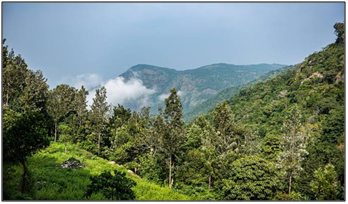Bhubaneswar: The biodiversity of Eastern Ghats is facing threats such as illegal poaching and deforestation, hence special protection and conservation efforts are needed for the preservation of biodiversity of the region, concluded experts at a webinar organised by the Orissa Environmental Society (OES) here Wednesday. Sarat Kumar Palita, dean the Department of biodiversity and conservation of natural resources at Central University of Odisha (CUO), joined the webinar as the chief speaker.
Speaking on the theme ‘Eastern Ghats: Biodiversity, resource use and threats,’ Palita explained that the biodiversity of the Eastern Ghats, more specifically of the Koraput region, has been under stress due to forest clearance for developmental activities, mineral extraction, agriculture and vegetable farming, continued practice of shifting cultivation, enhanced forest fire, increased tourist influx, plantation of exotic species and habitat degradation. “In addition, climate change is observed to have enhanced detrimental impacts on the local biodiversity, thus making them vulnerable and endangered,” said Palita while emphasising on systematic planning and implementation of sustainable conservation measures to save the Eastern Ghats from imminent destruction.
OES president Sundara Narayana Patro said that our endeavour should be to protect the original biodiversity and maintain the balance of nature while Jaya Krushna Panigrahi, secretary of OES, said that nature-based solutions should be adapted to human problems to reduce the devastation of the Eastern Ghats. Passing through Odisha, Andhra Pradesh and Tamil Nadu, parts extending into Telangana and Karnataka, the Eastern Ghats constitute a discontinuous range of mountains along the eastern coast of India.
ARINDAM GANGULY, OP






































